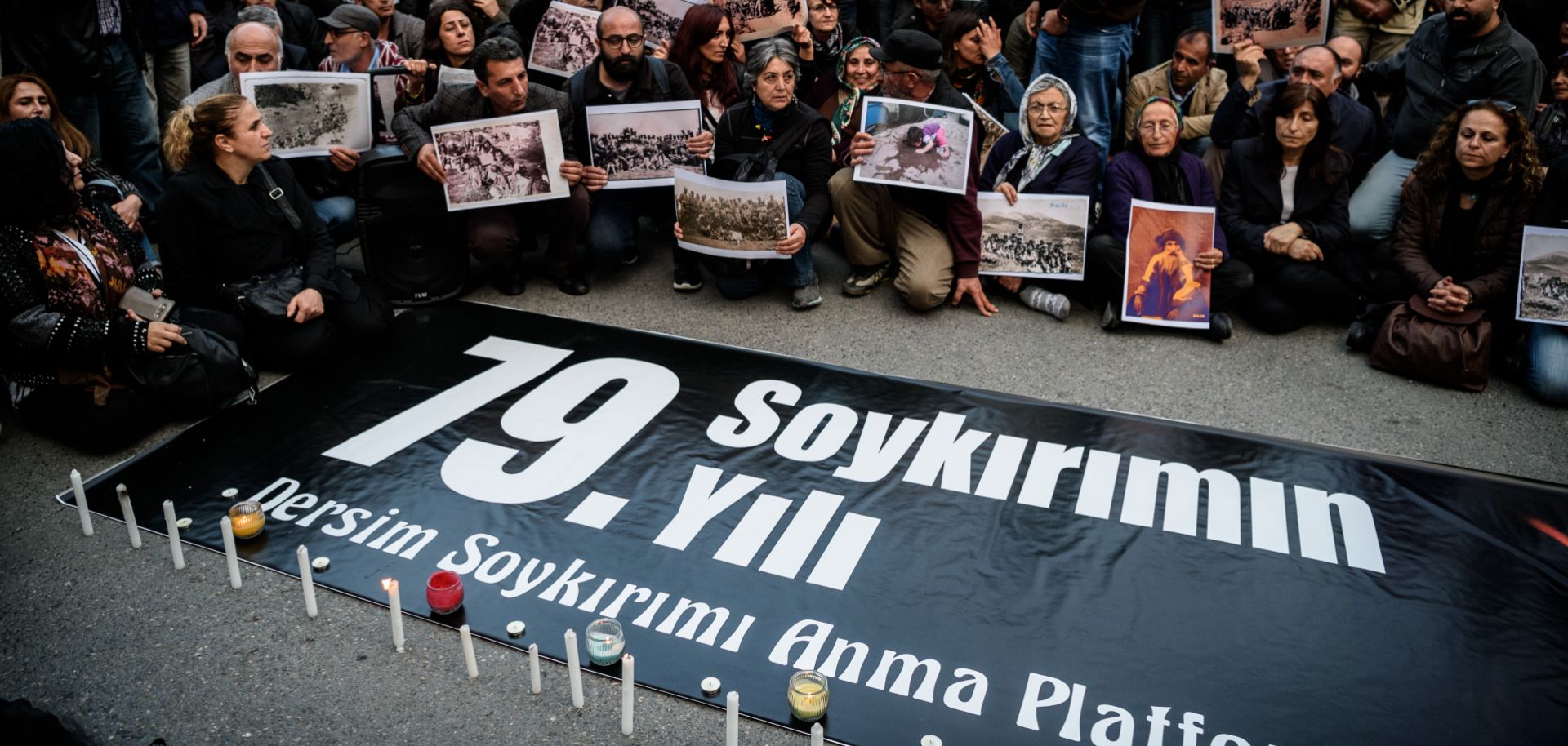COLUMNS
Witnessing the War of Symbols in Eastern Turkey
Dec 26, 2018 | 11:00 GMT

People hold pictures depicting victims of the Dersim operation in the 1930s, behind a placard marking the 79th anniversary of the genocide during a demonstration on May 4, 2016 in Istanbul. Turkey has cracked down on places like Dersim, now known officially as Tunceli, since the country's peace process broke down in 2015.
(OZAN KOSE/AFP/Getty Images)
Highlights
- Turkish authorities have clamped down hard on municipalities run by the country's largest pro-Kurdish party, assuming direct control and arresting dozens of mayors.
- Some residents hope municipal elections in March 2019 will offer a return to democracy, although President Recep Tayyip Erdogan has said he will not tolerate victories by the main Kurdish party.
- Because the Kurdish issue has spread beyond Turkey's borders, events throughout the Middle East will ultimately have a bearing on the relationship between the Turks and the Kurds in Anatolia.
Subscribe Now
SubscribeAlready have an account?
